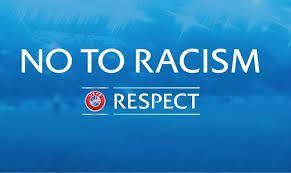Two recent books about the crisis of contemporary democracy. One by a renowned French political philosopher, the other by a German law professor – both underpinned by a deep concern about the direction in which our European societies are heading.  Pierre Rosanvallon writes about the ‘Society of Equals’ (1). His book is a plea to revisit the original democratic ideal of the French and American revolutions. According to him, the democratic idea has three dimensions: it is not only embodied in representative institutions and kept alive through a public culture of practiced citizenship, but it is also a project of creating a world of equals. The first two dimensions are not in such a bad shape: whatever one may say, our democratic institutions function pretty well, and citizens are increasingly making good use of all available communication channels for expressing criticism and demands. It’s the idea of equality which keeps regressing: social classes have nothing in common any more and this trend inevitably hollows out democracy as a whole. Christoph Möllers sums up the ‘demands and promises’ of democracy (2) in 173 concise and very elegantly phrased theses. He describes how, inevitably, the democratic ideal raises expectations which can only lead to disappointment. In an attempt to demystify these expectations, he also shows to what extent social heterogeneity is an essential element of functioning democracies:
Pierre Rosanvallon writes about the ‘Society of Equals’ (1). His book is a plea to revisit the original democratic ideal of the French and American revolutions. According to him, the democratic idea has three dimensions: it is not only embodied in representative institutions and kept alive through a public culture of practiced citizenship, but it is also a project of creating a world of equals. The first two dimensions are not in such a bad shape: whatever one may say, our democratic institutions function pretty well, and citizens are increasingly making good use of all available communication channels for expressing criticism and demands. It’s the idea of equality which keeps regressing: social classes have nothing in common any more and this trend inevitably hollows out democracy as a whole. Christoph Möllers sums up the ‘demands and promises’ of democracy (2) in 173 concise and very elegantly phrased theses. He describes how, inevitably, the democratic ideal raises expectations which can only lead to disappointment. In an attempt to demystify these expectations, he also shows to what extent social heterogeneity is an essential element of functioning democracies:
‘Homogeneous groups radicalise themselves, they grow disaccustomed to different possibilities of human living, they become cognitively and morally narrow-minded and lose the sensitivity for the democratic recognition of others.’
Both authors at one point identify as one the major handicaps of contemporary democracy the lack of genuine ‘public space’ (Rosanvallon) or ‘spaces of social community’ (Möllers), concrete places that are frequented and shared by all kinds of citizens. Both observe with concern that the spatial segregation of different layers of society keeps increasing. And both cite the football stadium as one of the major examples of social mixity they can spontaneously think of. This is, of course, not a new discovery. Football’s capacity of transcending social classes and generations has been highlighted by many as one of the key factors of its universal success. What is interesting here is the coincidence of these observations, as well as the role which is implicitly assigned to football – one of the rare places where a kind of voluntary exposure and emotional proximity to individuals from other socio-economic groups remains possible and which create common references. After reading the books by Rosanvallon and Möllers, I am not surprised Mrs Merkel regularly attends the matches of the Nationalmannschaft and Mr Hollande will be in the Stade de France this Tuesday for the next game of the Bleus. Perhaps it’s not so much about cynically trying to benefit in one way or another from some artificial proximity with the national team, but an instinctive urge to share one of the last remaining spaces that deserve the adjective ‘public’ in its democratic sense of transcending socio-economic classes.
(1) Pierre Rosanvallon, La société des égaux, Paris: Editions du Seuil, 2011. (2) Christoph Moellers, Demokratie – Zumutungen and Versprechen, Berlin: Wagenbach, 2008.
[cite]




